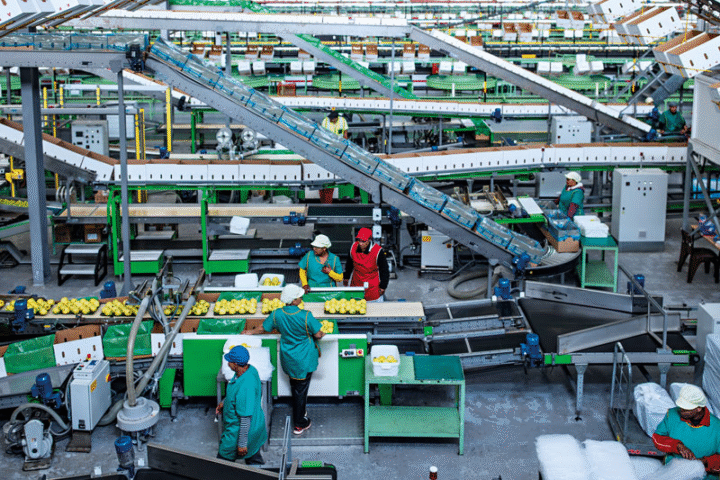Entrepreneurship has always been synonymous with risk. Founders put their reputations, finances, and often their health on the line to turn ideas into companies. Yet the landscape for entrepreneurs today feels more volatile than ever. Economic uncertainty, technological disruption, cultural shifts, and even geopolitical turbulence shape the way businesses are built and sustained.
In many ways, the opportunities have never been greater. Technology allows a solo founder in Berlin to sell software to customers in Tokyo within days. Social media enables a home-based entrepreneur in São Paulo to build a brand that rivals multinational corporations in visibility. Cloud platforms, e-commerce infrastructure, and global payment solutions have lowered the barrier to entry.
But with these opportunities come enormous pressures. Markets move quickly, customer expectations evolve constantly, and funding sources can dry up overnight. Founders must balance the hunger for growth with the necessity of resilience. They must be dreamers and pragmatists, visionaries and operators, optimists and realists—all at once.
This article explores how modern entrepreneurs are navigating this balancing act. It looks at the forces shaping entrepreneurship today, the pitfalls of chasing growth at all costs, the strategies for building resilience, and the mindset shifts required to thrive in an uncertain era.
The Age of Opportunity and Risk
The tools available to entrepreneurs today are extraordinary. Cloud computing allows anyone to scale software infrastructure without owning a single server. E-commerce platforms let businesses test products in global markets without setting foot outside their country. Social media provides free distribution channels once reserved for companies with advertising budgets in the millions.
But every opportunity comes with risk. Global connectivity also means global competition. A small bakery in London might compete not only with the café down the street but also with international delivery services shipping gourmet products across borders. A startup that gains traction quickly may face copycats within weeks, sometimes backed by bigger players with deeper pockets.
Entrepreneurs must therefore build not just businesses but adaptive systems. Agility is the new competitive edge. The question is no longer “Can you build it?” but “Can you sustain it when the environment changes overnight?”
Growth at All Costs: The Old Playbook
For decades, the dominant entrepreneurial narrative was “grow fast or die.” Investors celebrated hyper-growth, founders were rewarded for scaling quickly, and headlines focused on valuation milestones rather than profitability.
This playbook created giants like Uber, WeWork, and countless others, but it also left behind a trail of unsustainable businesses. Growth at all costs meant overhiring, reckless spending, and ignoring fundamentals like customer loyalty and unit economics.
Today, that playbook is under scrutiny. Investors and customers alike are asking harder questions: Is the business profitable? Can it weather economic downturns? Does it provide lasting value? Modern entrepreneurs must shift from chasing vanity metrics to building substance.
Resilience as the New Metric
Resilience has emerged as the defining trait of successful entrepreneurs in the 2020s. It is no longer enough to build fast; founders must build strong. Resilience shows up in multiple dimensions.
Financial Resilience
Entrepreneurs now prioritize sustainable cash flow over explosive revenue. Instead of raising endless rounds of venture capital, many aim for profitability earlier. Bootstrapping has regained respect, as founders prove they can grow without diluting ownership or relying entirely on external funding.
Operational Resilience
Lean operations, efficient processes, and the ability to pivot quickly are more valuable than ever. Businesses that survived recent global disruptions were often those with flexible supply chains, strong digital infrastructure, and leaders who adapted quickly.
Emotional Resilience
Entrepreneurship is not only a financial or operational challenge but also a psychological one. Founders must cultivate mental toughness to endure uncertainty, rejection, and constant decision-making. Resilient entrepreneurs manage stress, seek mentorship, and create boundaries to prevent burnout.
Case Studies of Modern Entrepreneurship
The Local Brand That Went Global
A small coffee roastery in Melbourne began as a neighborhood café. By leveraging e-commerce platforms and digital marketing, the founders built a subscription model that now serves customers worldwide. Instead of chasing physical expansion with high costs, they focused on scalable operations that weathered local lockdowns.
The Software Startup That Said No to Venture Capital
In Berlin, a pair of developers built a project management tool. Instead of pitching to investors, they launched a paid version from day one, reinvested earnings, and grew organically. Today, they serve thousands of customers while retaining full ownership—a model of financial resilience.
The Freelancer Who Built an Agency
In Toronto, a freelance designer used AI tools to handle repetitive tasks, freeing time to focus on strategy. As demand grew, she turned her solo practice into a boutique agency. By leveraging automation rather than overhiring, she built a scalable yet lean business.
These examples highlight a common thread: resilience was baked into the foundation, not added as an afterthought.
Strategies for Building Entrepreneurial Resilience
Start with Clear Fundamentals
Businesses that thrive in uncertain times have clear value propositions, healthy margins, and strong customer relationships. Chasing trends without fundamentals leaves companies fragile.
Diversify Revenue Streams
Over-reliance on a single product, client, or platform is risky. Entrepreneurs are learning to diversify—adding complementary products, exploring new markets, or building subscription models that provide predictable income.
Leverage Technology Thoughtfully
AI, automation, and digital tools can supercharge small teams, but indiscriminate adoption can backfire. The key is to implement technology where it directly enhances customer experience or reduces friction in operations.
Build Community and Networks
Isolation is one of the greatest risks for entrepreneurs. Resilient founders invest in networks—mentorship groups, peer circles, or industry associations—that provide both support and accountability.
Prioritize Mental Health
Burnout undermines even the strongest business models. Entrepreneurs increasingly view self-care as a strategic priority, not a luxury. Sleep, exercise, and mental breaks are treated as investments in long-term performance.
The Mindset Shift
The entrepreneurial mindset is evolving. Success is no longer measured solely by speed or size. It is measured by sustainability, adaptability, and impact. Founders are redefining what it means to “win.”
This doesn’t mean abandoning ambition. It means pursuing ambition with discipline. It means being willing to pivot when markets change, to pause when growth threatens stability, and to invest in resilience alongside expansion.
In practice, this mindset shift looks like rejecting vanity metrics in favor of customer retention. It looks like celebrating sustainable profitability over inflated valuations. It looks like entrepreneurs who see resilience not as a safety net but as a competitive strategy.
Conclusion
The modern entrepreneur lives in paradox: boundless opportunity paired with relentless uncertainty. Building a business today requires more than vision and hustle; it requires resilience across finances, operations, and mental health.
The stories of resilient entrepreneurs around the world prove that it is possible to grow businesses that are both ambitious and sustainable. By prioritizing fundamentals, diversifying revenue, leveraging technology wisely, building strong networks, and nurturing their own well-being, today’s founders are charting a new path.
Entrepreneurship will always involve risk, but resilience ensures that risk does not become ruin. The entrepreneurs who thrive in this era will be those who master the balancing act—not by chasing growth at all costs, but by building businesses that can endure, adapt, and lead into the future.














